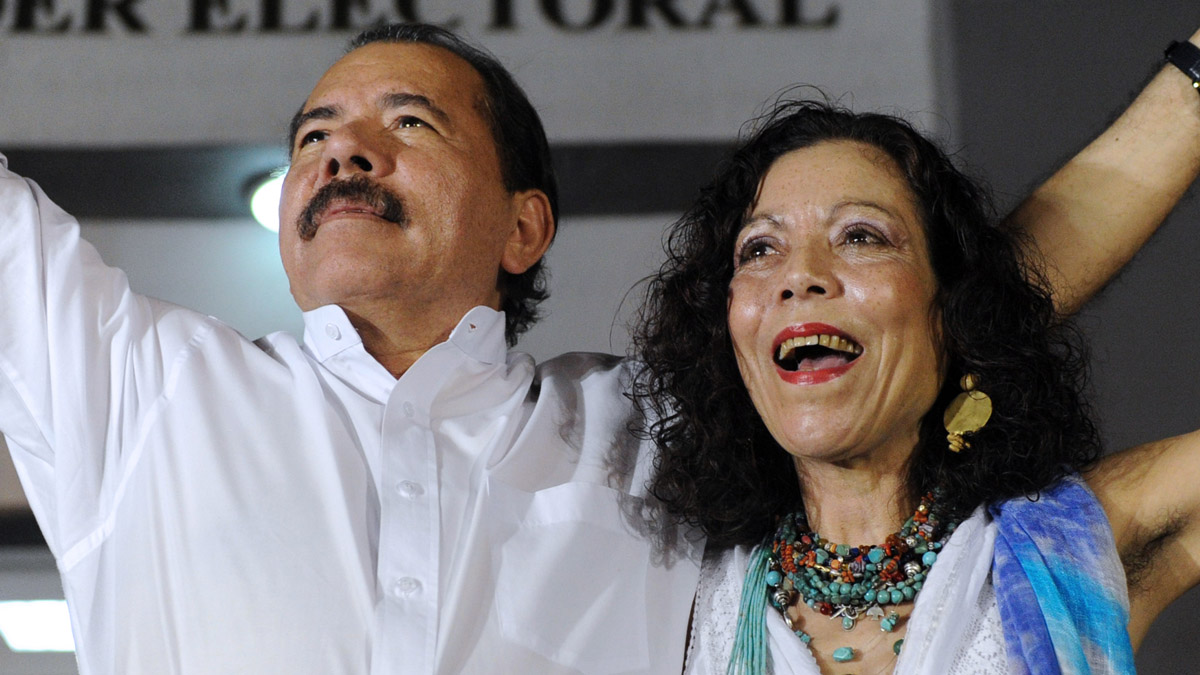Nicaraguan President Daniel Ortega names wife as running mate
Critics fear appointment of Rosario Murillo could signal rise of new family dynasty

A free daily email with the biggest news stories of the day – and the best features from TheWeek.com
You are now subscribed
Your newsletter sign-up was successful
Nicaragua's President Daniel Ortega has named his wife as his running mate in November's elections, leading to accusations he is trying to found a political dynasty.
The former guerrilla fighter hopes to win a third consecutive term for the Sandinista National Liberation Front (FSLN) with his wife, Rosario Murillo, as his vice president.
"This revolution – in which women have participated shoulder to shoulder – has opened the doors to the full participation of women in all spheres: political, social and economic," he said.
The Week
Escape your echo chamber. Get the facts behind the news, plus analysis from multiple perspectives.

Sign up for The Week's Free Newsletters
From our morning news briefing to a weekly Good News Newsletter, get the best of The Week delivered directly to your inbox.
From our morning news briefing to a weekly Good News Newsletter, get the best of The Week delivered directly to your inbox.
Murillo, who is currently serving as the government's communications chief, is known for "her idiosyncratic blend of socialism, Roman Catholicism and new-age beliefs", says The Guardian, and is credited with "overhauling both her husband's image and that of the movement he leads".
Ortega has described his "joint government" with his wife "as a symbol of equality between the sexes", says Reuters, but many Nicaraguans "see Murillo as wielding the most power in her country because of her higher public profile", reports the BBC.
Critics say the couple have run the country as their own personal fiefdom and many fear "a return to familial rule in Nicaragua", says Newsweek. The Somoza family governed Nicaragua as a dictatorship for 40 years, until they were overthrown by the left-wing Sandinistas in 1979.
A free daily email with the biggest news stories of the day – and the best features from TheWeek.com